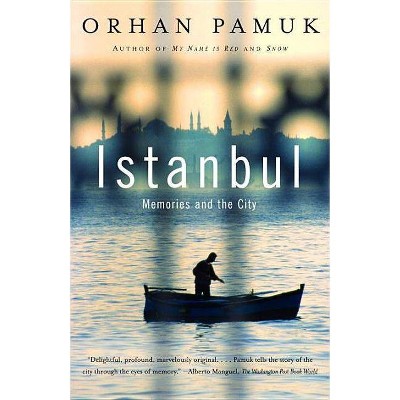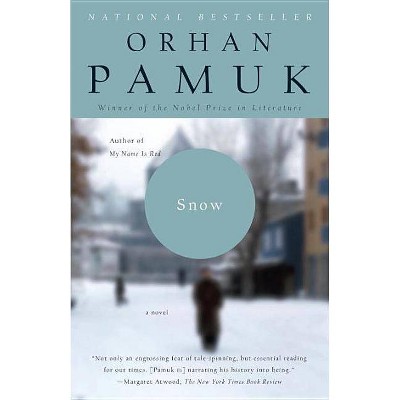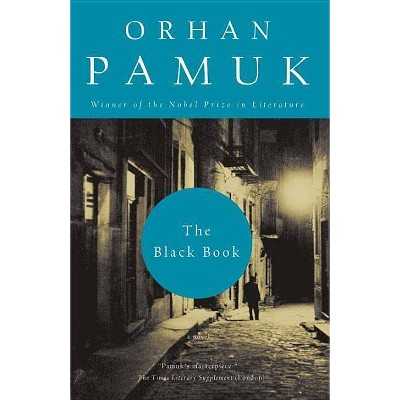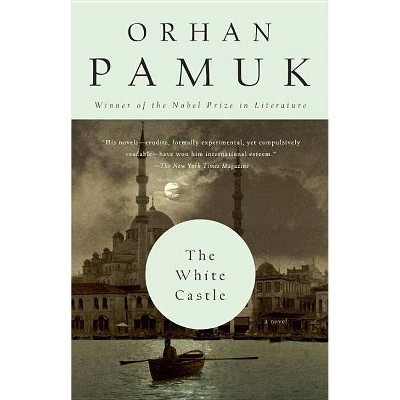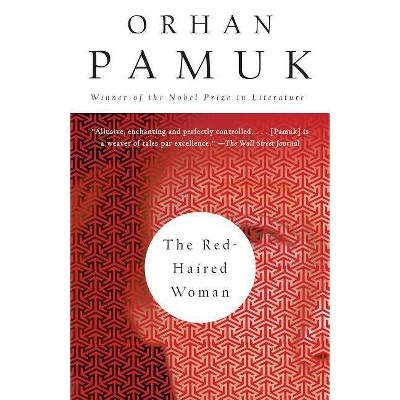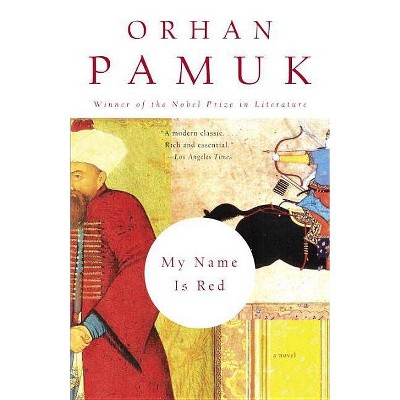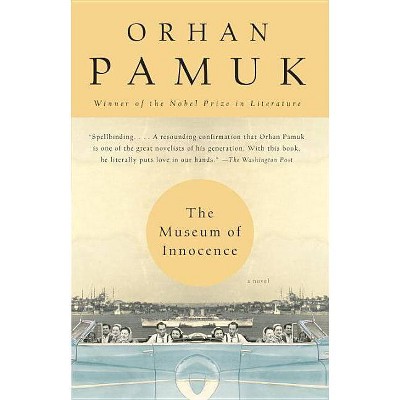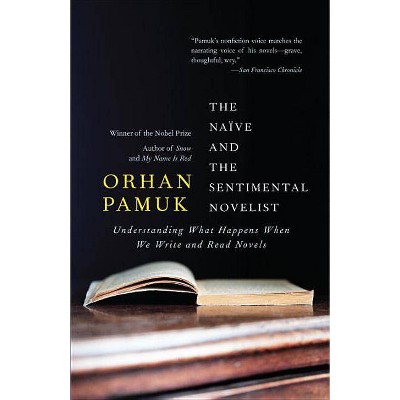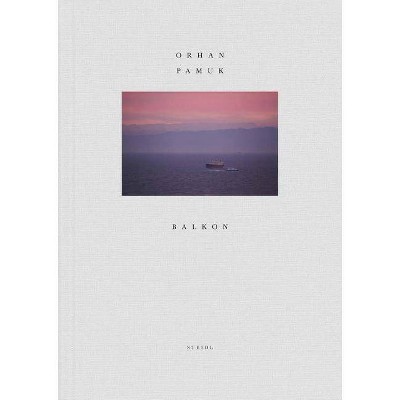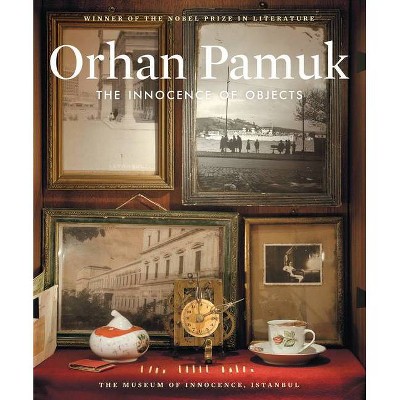A Strangeness in My Mind - (Vintage International) by Orhan Pamuk (Paperback)
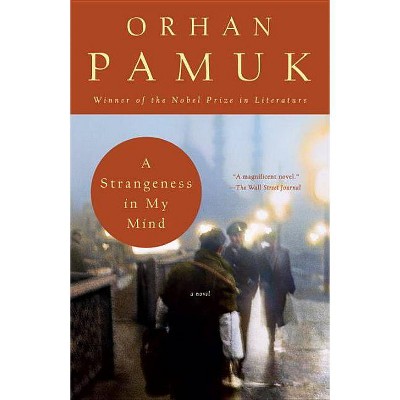
Similar Products
Products of same category from the store
AllProduct info
<p/><br></br><p><b> About the Book </b></p></br></br>"Since his boyhood in a poor village in Central Anatolia, Mevlut Karataðs has fantasized about what his life would become. Not getting as far in school as he'd hoped, at the age of twelve he comes to Istanbul--"the center of the world"--And is immediately enthralled by both the old city that is disappearing and the new one that is fast being built. He follows his father's trade, selling boza (a traditional mildly alcoholic Turkish drink) on the street, and hoping to become rich, like other villagers who have settled the desolate hills outside the booming metropolis. But luck never seems to be on Mevlut's side. As he watches his relations settle down and make their fortunes, he spends three years writing love letters to a girl he saw just once at a wedding, only to elope by mistake with her sister. And though he grows to cherish his wife and the family they have, he stumbles toward middle age in a series of jobs leading nowhere. His sense of missing something leads him sometimes to the politics of his friends and intermittently to the teachings of a charismatic religious guide. But every evening, without fail, Mevlut still wanders the streets of Istanbul, selling boza and wondering at the "strangeness" of his mind, the sensation that makes him feel different from everyone else, until fortune conspires once more to let him understand at last what it is he has always yearned for."--Jacket.<p/><br></br><p><b> Book Synopsis </b></p></br></br>Arriving in Istanbul as a boy, Mevlut Karataş is enthralled by both the old city that is disappearing and the new one that is fast being built. He becomes a street vendor, like his father, hoping to strike it rich, but luck never seems to be on Mevlut's side. He spends three years writing love letters to a girl he has seen just once, only to elope by mistake with her sister. Although he grows to cherish his wife and the family they have together, Mevlut stumbles toward middle age as everyone around him seems to be reaping the benefits of a rapidly modernizing Turkey. Told through the eyes of a diverse cast of characters, in <i>A Strangeness in My Mind</i> Nobel-prize-winning author Orhan Pamuk paints a brilliant tableau of life among the newcomers who have changed the face of Istanbul over the past fifty years.<p/><br></br><p><b> Review Quotes </b></p></br></br><br><b>One of the Best Books of the Year</b><br><b><i> The Washington Post</i> - <i>The Wall Street Journal</i> - <i>San Francisco Chronicle</i> - <i>Financial Times</i> - <i>Los Angeles Times</i> - <i>The Boston Globe</i> - <i>Milwaukee Journal Sentinel</i></b> <p/>"A magnificent novel." --<i>The Wall Street Journal</i> <p/>"Pamuk does for Istanbul something like what James Joyce did for Dublin. He captures not just the look and feel of the city, but its culture, its beliefs and traditions, its people and their values." --<i>The Washington Post</i> <p/>"Delightful. . . . Tremendous. . . . [Written with] virtuosic craft, intellectual richness, emotional subtlety and a feeling of freedom." --<i>The New York Times Book Review</i> <p/> "Complex, ambitious. . . . It is Pamuk's boundless compassion that makes the life of a struggling street vendor become, on the page, as monumental and as worthy of our attention as a sultan's." --Anthony Marra, <i>San Francisco Chronicle</i> <p/> "An unconventional love story. . . . A hymn to life's physical and mental chaos." --<i>The New York Times</i> <p/> "Reading Pamuk is like sipping a glass of fine wine or reading a late Dickens novel. Writers don't get any better. . . . With <i>A Strangeness in My Mind</i> the author has made Istanbul into one of the world's great literary cities." --<i>Counterpunch</i> <p/> "A glorious and teeming everyman epic." --<i>The Boston Globe</i> <p/>"A remarkable feat. . . . Light and funny. Pamuk's perspective is generous. He takes a long view of history. The intermingling, and clashes, of cultures and peoples are part of what makes a city great, he suggests." --<i>Chicago Tribune</i> <p/> "Poignant. . . . There are no uncomplicated human beings for Pamuk, who takes as one of his principal themes here the gulf between what people say publicly and think privately." --<i>Los Angeles Times</i> <p/> "A textured and rewarding narrative." --<i>The Economist</i> <p/> "Warm and gently engrossing. . . . At its heart, this is a novel about work, love and family." --<i>The Sunday Times</i> (London) <p/> "Beautifully done, suffused with a nostalgic light." --<i>Financial Times</i> <p/> "Passages recall Wordsworth, that champion walker from whose greatest poem Pamuk takes this novel's title. . . . [A] humble boza seller and his transfiguring imagination underscore why we're drawn to the Nobel-winning double who has imagined him." --<i>Milwaukee Journal Sentinel</i> <p/> "Magnificent. . . . Pamuk is becoming that rare author who writes his best books after winning the Nobel Prize for Literature." --<i>The Independent</i> (London) <p/> "A fictional continuation of <i>Istanbul</i>. . . . A nuanced novel that asks questions many are too afraid to utter: What if we are left behind, unable to adapt to a rapidly changing world? What if we dedicate our life to something that doesn't matter?" --<i>Pittsburgh Post-Gazette</i> <p/> "Mesmerizing. . . . A thoroughly immersive journey through the arteries of Pamuk's culturally rich yet politically volatile and class- and gender-divided homeland." --<i>Publishers Weekly</i> (starred) <p/> "<i>A Strangeness in My Mind</i> is more than a coming-of-age story. It is also about the transformation of a city and a fascinating one at that." --<i>Portland Press Herald</i> <p/> "Rich, complex, and pulsing with urban life: one of this gifted writer's best." --<i>Kirkus</i> <i>Reviews</i> (starred) <p/> "Pamuk captures the rapid growth and change of his beloved city." --NPR <p/> "[A] carefully detailed and compassionately told tale. . . . [Pamuk writes] with a universal warmth, wit, and intelligence." --<i>Library Journal</i><br><p/><br></br><p><b> About the Author </b></p></br></br>Orhan Pamuk won the Nobel Prize for Literature in 2006. His novel <i>My Name Is Red</i> won the 2003 IMPAC Dublin Literary Award. His work has been translated into more than sixty languages.
Price History
Price Archive shows prices from various stores, lets you see history and find the cheapest. There is no actual sale on the website. For all support, inquiry and suggestion messages communication@pricearchive.us
